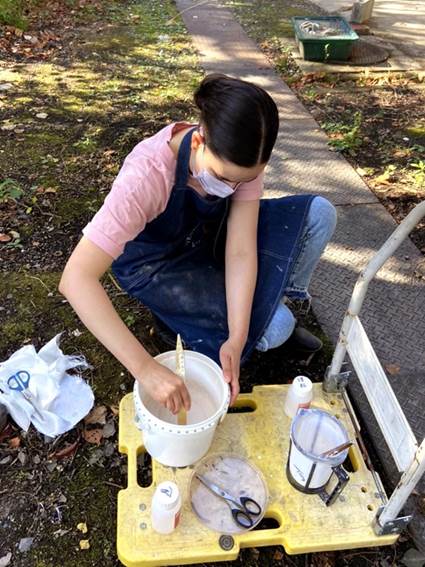Talia, a Cuban artist, embarked on an international journey that significantly shaped her artistic identity and practice. Her early influences stemmed from the progressive environment of Academy San Alejandro in Havana, where access to international books and films broadened her perspectives, laying the groundwork for her future explorations. This foundation propelled her to seek further opportunities abroad, specifically in the UK, drawn by the rich multicultural scene and prestigious institutions like the Royal College of Art. This move represented a pivotal shift, exposing her to a global art world that contrasted sharply with the more limited and defined artistic landscape of Cuba.
The transition to the UK presented numerous challenges, from practical hurdles like opening a bank account and securing visas to navigating a more individualistic culture. However, Talia viewed these obstacles as learning experiences, actively seeking support and mentorship to overcome them. She also grappled with the complexities of being a disabled female migrant from a working-class background, further enriching her understanding of marginalized experiences and informing her artistic explorations. Her experiences with diversity and accessibility in the UK inspired new themes in her work, reflecting her growing commitment to social change through art.
Exposure to different artistic cultures – Germany, Netherlands, Japan, and Switzerland – broadened Talia’s horizons, offering new perspectives on artistic practice and reception. While she encountered the challenges of being perceived through a narrow lens of national identity, these encounters also pushed her to critically examine the interplay between personal identity and artistic expression. She observed varying levels of individualism, artistic freedom, and support structures in each location, contributing to a nuanced understanding of the global art world and its impact on individual artists. The experience of being categorized and labeled based on her Cuban heritage prompted a deeper reflection on how identity is perceived and represented in international artistic spaces.
Talia’s Cuban heritage remains a significant influence on her artistic voice. The history of Cuban migration, particularly the exodus of the 1980s and the personal loss of her grandfather, profoundly shaped her perspective. She aims to humanize the often-dehumanizing narratives of migration, focusing on the individual stories often overshadowed by statistics. Her experiences in Switzerland, exploring peacebuilding efforts and collaborating with artists from marginalized regions, further expanded her thematic interests and broadened her global perspective. Access to resources and materials unavailable in Cuba allowed her to explore new mediums and work on a larger scale, significantly impacting her artistic style.
The logistical complexities of working internationally, from shipping art to managing exhibition schedules, pushed Talia to adapt her artistic practices. Limited resources and the challenges of transporting large-scale works led her to explore digital mediums, performance art, and video, enabling her greater flexibility and resourcefulness. This adaptability underscores her entrepreneurial spirit and resourcefulness, constantly seeking new ways to express her vision despite practical limitations. These experiences also clarified her artistic goals, making it easier to secure funding and opportunities for more ambitious projects.
Through her global journey, Talia developed a strong sense of resilience and a belief in the power of collaboration. She recognizes the value of diverse perspectives and expertise, leveraging networks to connect with like-minded individuals and access new opportunities. Experiences of bias and societal expectations, particularly as a Latina woman artist, further fueled her creative exploration, motivating her to challenge stereotypes and advocate for greater inclusivity. Her work, like “Cleaning Service,” directly addresses these issues, giving voice to the often-overlooked experiences of marginalized communities. Her travels also exposed her to cultural nuances, such as British neutrality, which she explored in her work “A Game of Pretend.” This constant engagement with different cultural contexts allows her to enrich her artistic narratives and deepen her understanding of human interaction. The freedom of expression she found in the UK, contrasted with the censorship experienced in Cuba, empowered her to explore complex themes with greater depth and nuance. Looking forward, Talia remains committed to her global perspective, embracing collaboration and continuing to evolve as a global artist, drawing inspiration from her diverse experiences and actively shaping a space for her unique voice within the international art world.














